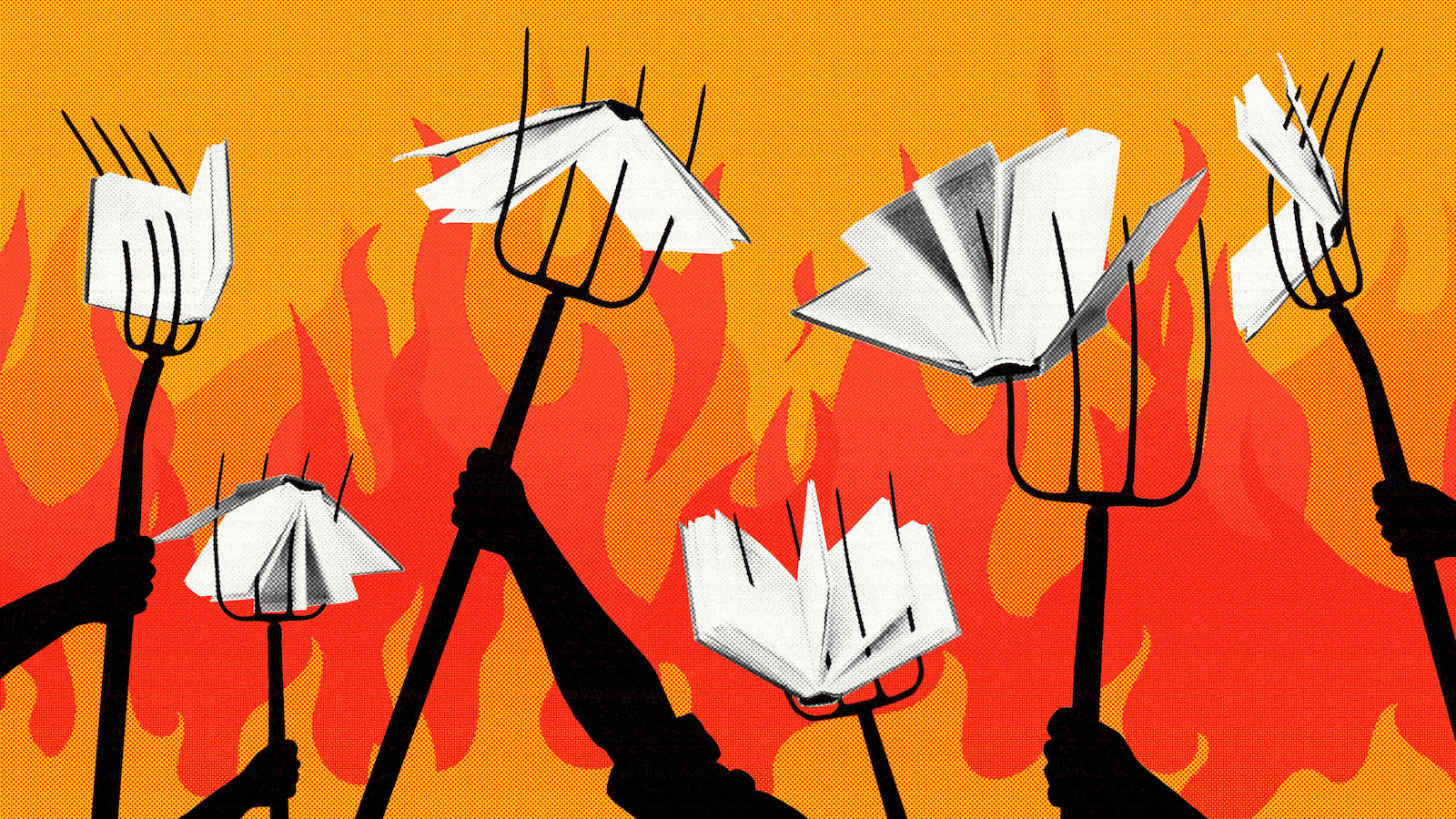As the mayor of Hudson, Ohio, Craig Shubert doesn’t have the power to prosecute anybody. But that didn’t stop him from delivering a hefty ultimatum to school board members at a Sept. 13 meeting: either they could resign en masse, or they could all face child pornography charges.
Despite what Shubert claimed, Hudson’s school board hasn’t been distributing child pornography. Instead, he was threatening to prosecute them over 642 Things to Write About, a book of writing prompts distributed to some Hudson high school students in a college-level course that required a parental permission slip. Prompts like “Write a sex scene you wouldn’t show your mom,” according to Shubert, merited the child porn charges.
“It has come to my attention that your educators are distributing essentially what is child pornography in the classroom,” Shubert said, to applause from the meeting’s audience. “I’ve spoken to a judge this evening. She’s already confirmed that. So I'm going to give you a simple choice. You either choose to resign from this Board of Education or you will be charged.”
No school board members resigned. Still, video of his remarks went viral on right-wing social media after being promoted by various conservative media figures like Candace Owens, and prompted threats to the school board members.
Experts on free expression say Schubert’s threat was just one part of a worrying new trend: attempts to have librarians or school board officials criminally prosecuted because of books some parents deem inappropriate.
“What’s new is the notion of calling police, and police responding to it as though it was indeed something we might consider prosecuting librarians over,” said Jonathan Friedman, PEN America’s director of free expression and education.
In a statement about Shubert’s threat, a prosecutor in Summit County, Ohio said “a prompt about a fictional writing is not child pornography” but stated that officials are still reviewing the case to see whether laws were broken in the book’s distribution to students. Shubert, a former Republican candidate for state representative, didn’t respond to a request for comment.
The threat of prosecution over book controversies isn’t limited to Ohio. In Wyoming’s conservative Campbell County, prosecutors are weighing charges against librarians because of a criminal complaint over sex education and LGBT-related books stocked in sections for children or young adults, the Associated Press reported on Friday.
The list of challenged books, which include a children’s book called How Do You Make a Baby? and a book aimed at teenagers called Dating and Sex: A Guide for the 21st Century Teen Boy, prompted a complaint to a local sheriff’s department. Now prosecutors in the county are considering charges against library employees, according to the AP, as well as the appointment of a special prosecutor.
School and public libraries already have formal procedures for members of the public to raise concerns about whether a book is inappropriate, according to Deborah Caldwell-Stone, the head of the American Library Association’s Office for Intellectual Freedom. But these new attacks on books are often driven by widely circulated videos of angry parents speaking about books at municipal meetings, according to Caldwell-Stone, who said officials’ panicked reactions to those videos circumvent a democratic review process.
Caldwell-Stone pointed out that the books in question in each case don’t meet any legal definition of obscenity or child pornography and are all available through Amazon and major bookstores.
“We’re just deeply concerned about this effort to prosecute librarians and educators for providing constitutionally protected mainstream materials,” Caldwell-Stone said.
The possible prosecutions come amid a new focus on the right in book challenges. A growing right-wing movement to root out the often-imagined teaching of “critical race theory” in schools has driven new challenges for books that cover racial issues, according to Caldwell-Stone.
The phenomenon of involving law enforcement in disputes over books has also spread to Texas. In Leander, near Austin, at least three people filed police complaints over a high school library stocking Lawn Boy by author Jonathan Levison, which includes descriptions of a sexual encounter between two fourth-grade boys. In September, the Leander Police Department told a local TV station that it was investigating the material in the book.
The new waves of outrage over certain books appear to be driven by social media, according to PEN America’s Friedman, with a popular video of a tense school board about a book controversy in one area prompting parents in another town to see if their libraries stock a challenged book themselves. But the social media attention can create some mix-ups — in one school, for example, parents criticized author Gary Paulsen’s Lawn Boy, confusing it for Levison’s identically named book.
“What’s changed is the going-viral moment,” Friedman said.
In Hudson, Ohio, the mayor’s ultimatum prompted a backlash in support of the school board. At a Sept. 27 school board meeting, hundreds of attendees gave the embattled school board members a standing ovation to show their support in the face of the threats.
“This idea that a library should function only to cater to the preferences of one contingent in society is of course anathema to the whole notion of a public library,” Friedman said.







